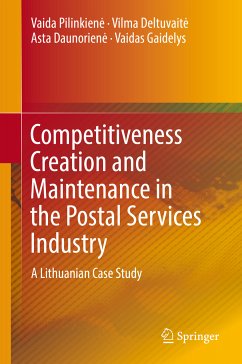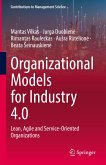This book examines the changing business and economic environment for postal services in Lithuania and the upcoming challenges for this industry. Postal services continue to play a central part in the development of national economies. However, the economic and social role of postal services has changed rapidly and fundamentally over the last two decades. In most industrialized countries, paper-based communications are in serious decline, while the demand for parcel delivery services is rising steadily with the continuing development of e-commerce, just-in-time production techniques, and global supply chains. For the postal sector as a whole, the centre of gravity has shifted dramatically from letters and documents to parcels. The authors explain how the organizational paradigm has inexorably shifted from that of a national, government-owned postal administration providing the basic delivery services required by society, to a system of interdependent local and regional undertakingsthat both compete and cooperate with one another. The book argues that there are no indications that the postal sector has stopped changing, and that it seems most probable that the European Union's postal sector will look quite different in 2035 than it does today. In closing, the book explains how the shareholders of postal services companies have recently confirmed that the time has come to rethink the strategy of creating and maintaining competitiveness in the postal services industry.
Dieser Download kann aus rechtlichen Gründen nur mit Rechnungsadresse in A, B, BG, CY, CZ, D, DK, EW, E, FIN, F, GR, HR, H, IRL, I, LT, L, LR, M, NL, PL, P, R, S, SLO, SK ausgeliefert werden.









